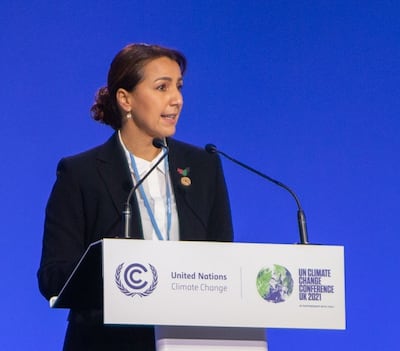One lesson of the Conference of the Parties climate change process is that successive layers of participation have been added since the first meeting in Berlin in 1995 under the presidency of Angela Merkel.
When the meeting is held in the UAE, opening on November 6, 2023, there will have been years of work by dedicated diplomats and experts on the framework and tone of the discussions.
Ed Miliband, the former British Cabinet minister and leader of the UK delegation at the Copenhagen summit in 2009, describes the effort as multidimensional chess, observing that it requires a much bigger effort to undertake that the G7 or G20.
The cyclical nature of the Cop means that certain pillars of the framework that came out of the 2015 Paris Agreement will rise to the top of the agenda. For example, one of the documents issued in Glasgow foreshadows that the next review of the Warsaw International Mechanism is to be held in 2024 and every five years thereafter.
The Warsaw mechanism recognises loss and damage associated with climate change and is cherished by the least developed nations. Mr Miliband observes that the most successful Cop meetings have been those in which the organisers harness the interests of the developing countries with the richest to pull all the body of nations together.

Further work to be done on other pillar issues, such as transparency in accounting for climate change pledges and carbon-credit mechanisms, would complete the transformative process envisaged by the framers of the Paris Agreement. With hours left in the Glasgow talks, negotiators were still listing options on how to treat old Kyoto Protocol-era carbon offsets under a new programme that would revive this vital trading process after the previous international system collapsed.
The details on how to avoid double counting and use cash generated from emissions trading were still being hammered out as the clock ticked towards the scheduled close of the summit.
One of the big issues in Glasgow was whether the meetings could keep the target of holding the rise of planetary temperatures to 1.5°C within reach. Paris negotiators agreed that an annual $100bn in resources should be made available to the developing countries for mitigation of climate change.
That target is likely to be hit in 2023 when the UAE hosts the meeting. Hitting the target should boost confidence in the least developed countries in the process. That faith has been a sore point in Glasgow and having a common spirit would be a key advantage for negotiators in 2023.
The UK presidency employed an arsenal of tactics to boost momentum at Cop26. Finance was mobilised behind the Glasgow Financial Alliance for Net Zero. The UK officials looked to build on the World Leaders Summit with Cop ‘thematic days’ launching multi-nation pledges on deforestation, hydrogen, net-zero vehicles and methane that were hailed as clear 'wins’ for driving the projected temperature rise down to 1.5°C.
















